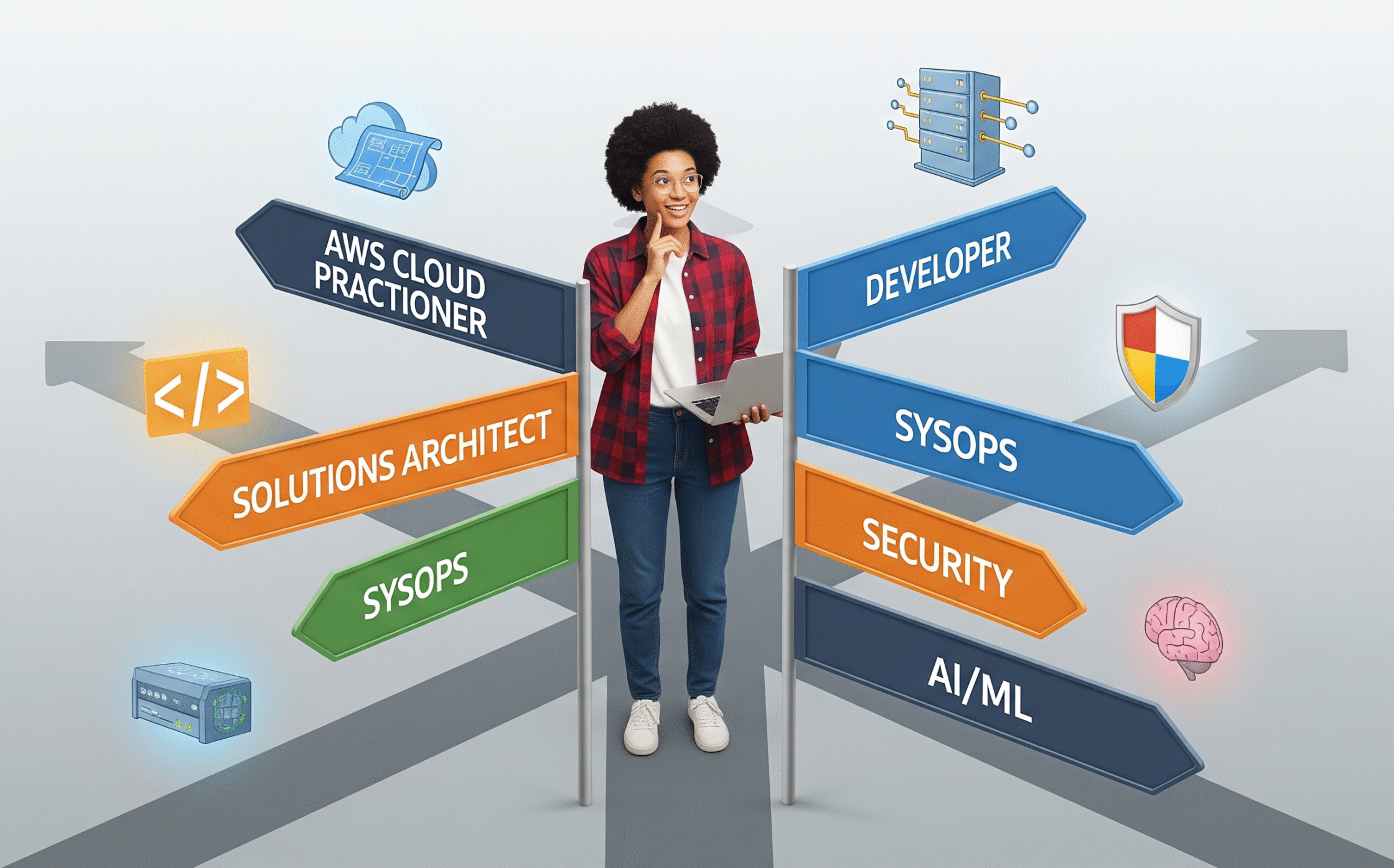AWS Certifications Explained: Which One Fits You Best?

Amazon Web Services (AWS) is the backbone of cloud computing today, and its certifications can open doors to high-paying IT jobs. But with so many options, which one should you choose? Here’s a beginner-friendly breakdown:
🌱 AWS Certified Cloud Practitioner (Entry Level)
Best for absolute beginners in cloud.
Covers basics of AWS services, pricing, and cloud concepts.
Ideal if you’re starting your IT journey or want to understand the cloud before diving deeper.
👨💻 AWS Certified Solutions Architect – Associate
One of the most popular certifications.
Focuses on designing secure, scalable, and cost-effective systems.
Great for developers, engineers, or anyone aiming to work on cloud infrastructure.
⚙️ AWS Certified Developer – Associate
Tailored for those who build and deploy apps on AWS.
Teaches you how to use AWS SDKs, databases, and services like Lambda.
Best for programmers who want to strengthen their cloud-based development skills.
🛠️ AWS Certified SysOps Administrator – Associate
Focuses on operations and monitoring.
Involves managing deployments, performance tuning, and troubleshooting.
Perfect for those who enjoy system administration tasks.
🚀 AWS Certified Solutions Architect – Professional
Advanced level certification.
Validates deep expertise in designing enterprise-level cloud solutions.
Ideal for experienced architects looking to lead big cloud projects.
🔒 AWS Certified Security – Specialty
Focuses on data protection, encryption, and compliance.
Important for roles in cybersecurity and regulated industries.
Great add-on if you already work in security and want to move into cloud security.
🤖 Other Specialty Certifications (AI, ML, Networking, Data Analytics)
Designed for those with specialized career goals.
Example: Machine Learning Specialty is perfect if you’re into AI/ML projects.
Choose based on your long-term interests in cloud technology.
Final Takeaway
AWS certifications are not one-size-fits-all. The best one depends on your career stage and goals—start with Cloud Practitioner if you’re a beginner, then move to Architect, Developer, or specialty tracks as you grow.